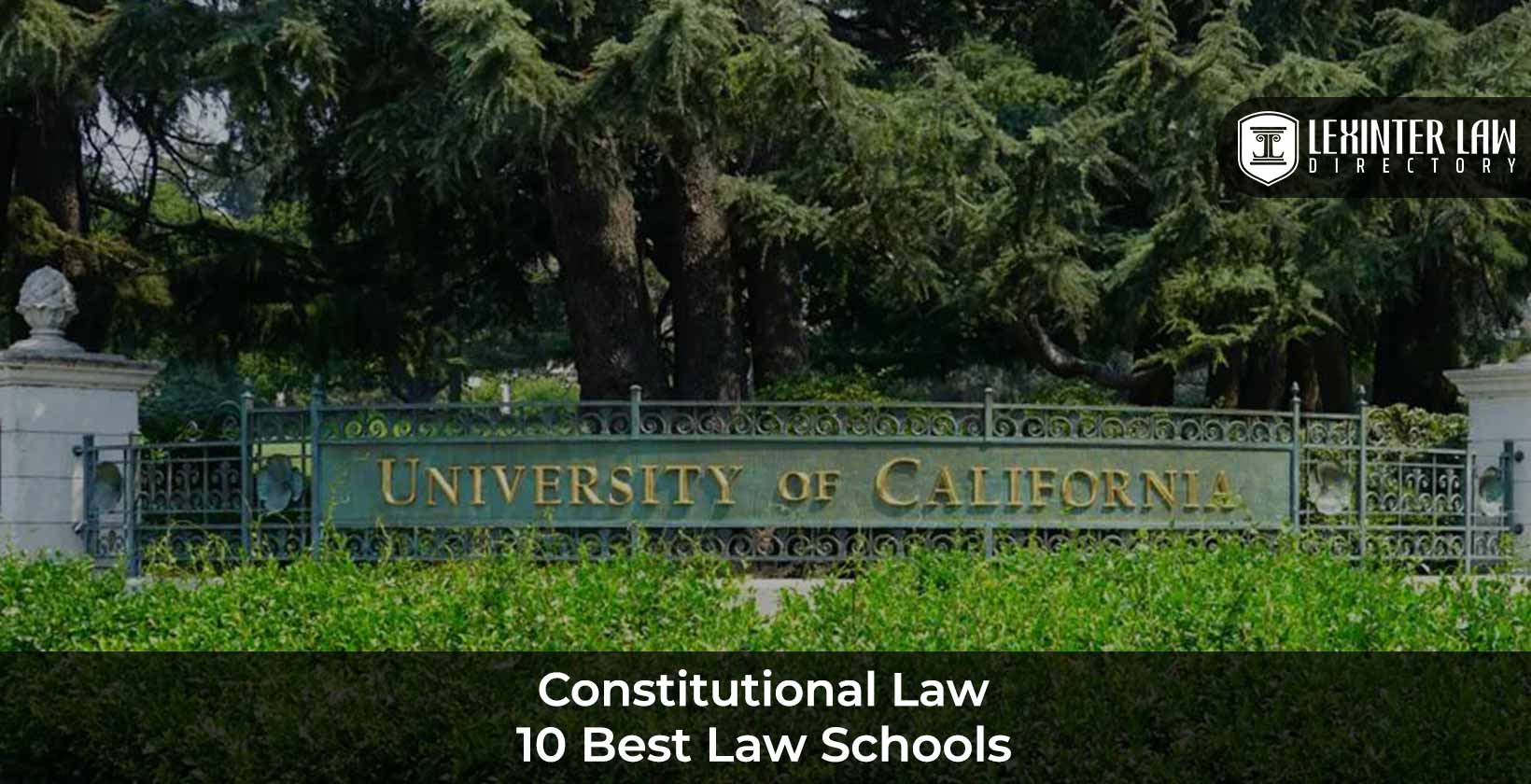10 Best Constitutional Law Schools
The 10 best constitutional law schools provide exceptional education and resources for aspiring constitutional law experts. Harvard Law School is renowned for its strong constitutional law program and distinguished faculty. Yale Law School ranks among the top US law schools, known for producing influential legal scholars. Stanford Law School, consistently rated among the best law schools in the country, offers extensive constitutional law courses and clinics, ensuring a comprehensive education for students.
Best law schools for constitutional law include Columbia Law School, which boasts a robust curriculum and numerous experiential learning opportunities. The University of Chicago Law School provides a rigorous academic environment and top-tier constitutional law faculty. New York University School of Law emphasizes practical experience through constitutional law clinics. University of Virginia School of Law offers a comprehensive program with a focus on historical and contemporary issues, preparing students for various career paths. Duke University School of Law and the University of Michigan Law School stand out as the best constitutional law schools in the country. UC Berkeley School of Law is recognized for its innovative approach and diverse course offerings in constitutional law.
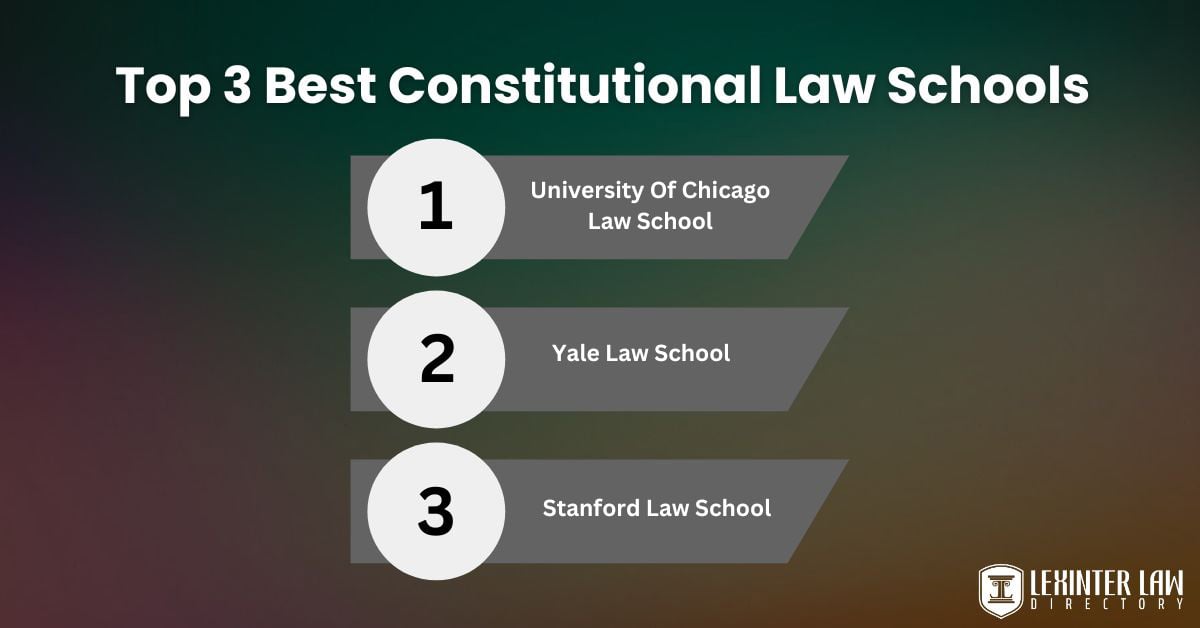
The top 3 best constitutional law schools are listed below.
- University Of Chicago Law School: Harvard University offers a robust Constitutional Law program founded in 1817. The curriculum includes a mandatory first-year Constitutional Law course, followed by advanced seminars and clinics. Notable alumni include Barack Obama and Ruth Bader Ginsburg. The acceptance rate at Harvard University Law School is approximately 9.6%, making the institution highly competitive. Total annual expenses, including fees, housing, and personal costs, are estimated at $116,500.Harvard University Law School is ranked No. 4 (tie) out of 196 in the 2024 U.S. News & World Report’s Best Law Schools list.
- Yale Law School: Yale University boasts a prestigious Constitutional Law program focused on theory and practice founded in 1701. The curriculum emphasizes small class sizes and individual research projects. Alumni include Bill Clinton and Sonia Sotomayor. Yale Law School’s acceptance rate is 5.58%, reflecting the institution’s highly selective nature. The annual tuition for the 2024-2025 academic year at Yale Law is approximately $76,369. The total estimated cost of attendance is around $93,923, including fees, living expenses, and other costs. Yale University is ranked No. 1 among top law schools in the United States by U.S. News & World Report.
- Stanford Law School: Stanford University features a robust constitutional law program integrating interdisciplinary studies. The university was established in 1885. The curriculum offers flexibility with numerous elective courses and clinics. Notable alumni include Sandra Day O’Connor and William Rehnquist. Stanford Law is highly selective, with an acceptance rate of approximately 7.3%. The tuition for Stanford Law is approximately $64,350 per year. The total cost of attendance is around $107,055 annually, including additional fees and living expenses. Stanford is ranked No. 1 (tie) in Best Law Schools by U.S. News & World Report.
Table of Contents
- 1. University Of Chicago Law School
- 2. Harvard Law School
- 3. New York University Law School
- 4. Yale Law School
- 5. Stanford Law School
- 6. UC Berkeley School Of Law
- 7. Columbia Law School
- 8. University Of Michigan Law School
- 9. University Of Virginia School Of Law
- 10. Duke University School Of Law
- How To Choose The Best Constitutional Law Program?
- What Is the Best Major For Constitutional Law?
- How To Become A Constitutional Lawyer?
- How Long Would It Take To Study Constitutional Law?
- What To Expect From A Career As A Constitutional Lawyer?
- What Is The Difference Between A Constitutional Lawyer And A Criminal Lawyer?
- How Do Constitutional Lawyers Earn?
- Where Do Constitutional Lawyers Work?
- How To Find A Good Constitutional Lawyer Near Me With Lexinter?
1. University Of Chicago Law School
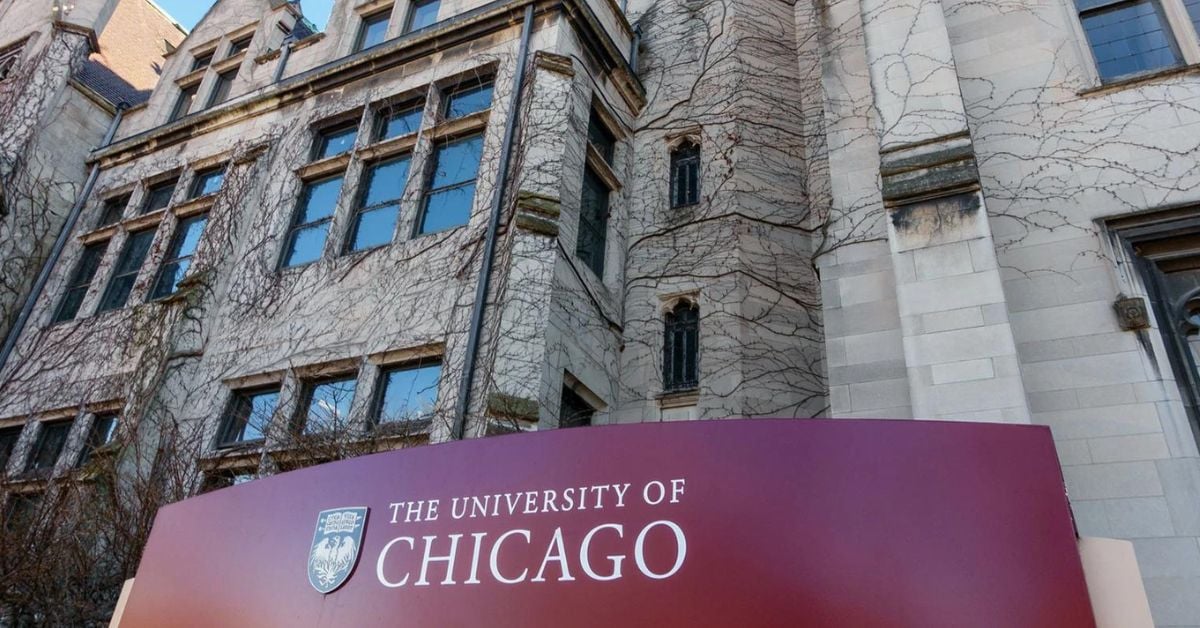
The University of Chicago, established in 1902, is a prestigious private institution located in Chicago, Illinois. The University of Chicago Law School has significantly impacted legal education and is renowned for the institution’s rigorous academic programs and influential faculty. The institution’s interdisciplinary approach, especially in law and economics, sets it apart from other law schools. The University of Chicago continues to attract top students and faculty from around the world and is known for the institution’s high standard of excellence. The University offers various programs, including the Juris Doctor (JD), Master of Laws (LLM), Doctor of Juridical Science (JSD), and Master of Legal Studies (MLS). The JD program spans three years and provides comprehensive legal education. The LLM program is tailored for international students aiming to understand U.S. law better. The JSD program is designed for individuals pursuing academic careers in law and provides advanced research opportunities.
The acceptance rate at the University of Chicago Law School is approximately 15%, making it highly competitive. The low acceptance rate reflects the institution’s status as a top-tier law school. Applicants have a median undergraduate GPA of 3.94 and a median LSAT score of 173. The selective admissions process ensures that students admitted to the program are among the best and brightest. Tuition for the JD program at the University of Chicago is approximately $66,939 for the academic year 2023-2024. Additional fees for activities, health services, and other costs bring total annual expenses to around $77,000. The investment in education is significant but reflects the value of a degree from one of the nation’s top law schools. Financial aid and scholarship opportunities are available to help offset the costs.
The University of Chicago Law School is consistently ranked among the top law schools in the United States. The institution holds the third position nationally in the 2024 rankings by U.S. News & World Report. The institution ranks second in constitutional law and business law and fourth in corporate law. The law school specialty rankings highlight the institution’s strong academic programs and influential faculty. Specialized programs at the University of Chicago Law School include a robust focus on constitutional law. Courses cover the interpretation and application of the U.S. Constitution, addressing topics including individual rights, government powers, and judicial review. The University of Chicago offers specialized programs in Law and Economics, Public Interest Law, and Business Law and is one of the best Illinois law schools. The programs prepare students for diverse careers in legal practice, academia, and public service, emphasizing interdisciplinary learning and practical experience.
The University of Chicago Law School boasts several distinguished faculty members known for their expertise in constitutional law. William Baude, Harry Kalven, Jr. Professor of Law, researches federal courts and election law. Aziz Huq, Frank, and Bernice J. Greenberg, Professor of Law, explore constitutional design. Alison LaCroix, Robert Newton Reid Professor of Law, specializes in American federalism and constitutional development. The University of Chicago Law School offers robust clinical programs, including opportunities focused on constitutional law. The Mandel Legal Aid Clinic provides students with practical experience in civil rights and police accountability. Students gain hands-on experience by working on real cases under the supervision of experienced faculty. The opportunities prepare students for careers in constitutional law.
The Law School’s alumni network includes several prominent figures in constitutional law. Abner Mikva served as Chief Judge of the United States Court of Appeals for the D.C. Circuit. Jeffrey Wall served as Acting Solicitor General of the United States. Franita Tolson, an expert in election law and voting rights, teaches at USC Gould School of Law. The University of Chicago Law School offers a wide range of courses in constitutional law. Constitutional Law I and II cover the structure of the Constitution and individual rights. Federal Courts examine the jurisdiction and powers of federal courts. The First Amendment course focuses on the freedoms of speech, religion, and assembly. Equal Protection and Due Process studies the 14th Amendment.
Graduates of the University of Chicago Law School specializing in constitutional law have excellent employment outcomes. Several graduates secure prestigious clerkships, including at the U.S. Supreme Court. The high placement rate in competitive clerkships underscores the effectiveness of the Law School’s programs. 94.5% of graduates find influential legal positions and are employed 10 months after graduation.
2. Harvard Law School

Harvard University, established in 1817, is the oldest continuously operating law school in the United States. Harvard University Law School (HLS) is renowned for its rigorous academic programs and influential faculty located in Cambridge, Massachusetts. The institution has a significant impact on legal education and practice worldwide. HLS attracts top students and scholars from around the globe. Harvard University Law School offers various degree programs, including the Juris Doctor (JD), Master of Laws (LLM), and Doctor of Juridical Science (SJD). The JD program provides comprehensive legal education over three years. The LLM program is a one-year course for international students and specialized legal training seekers. The SJD program targets individuals pursuing academic careers in law.
The acceptance rate at Harvard University Law School is approximately 9.6%, making it highly competitive. There were 8,393 applications, with 798 offers extended and 561 students enrolling for the JD class entering in 2026. Admitted students have median LSAT scores between 171 and 176 and GPAs around 3.90. The rigorous selection process ensures highly qualified candidates. The cost of attendance at Harvard Law School reflects the quality of education offered. Tuition is $77,100 for the 2024-2025 academic year. Total annual expenses, including fees, housing, and personal costs, are estimated at $116,500. Financial aid is available, with around 40% of JD students receiving grant assistance. Harvard Law School’s financial aid programs help mitigate high costs.
Harvard University Law School is ranked No. 4 (tie) out of 196 in the 2024 U.S. News & World Report’s Best Law Schools list. Harvard maintains a prestigious reputation and is known for its influential faculty and comprehensive curriculum. The law school ranks No. 1 in Constitutional Law, No. 2 in Business/Corporate Law, and No. 16 in Clinical Training, standing out among law schools in Massachusetts. Harvard Law School offers numerous specialized programs, including a strong focus on constitutional law. Courses cover the structure of the Constitution, individual rights, and the judicial process. Other specialized programs include Business Law, Human Rights, and Intellectual Property Law. HLS offers joint degree programs, including the JD/MBA with Harvard Business School and the JD/MPP with Harvard Kennedy School.
Harvard University Law School boasts a distinguished faculty renowned for expertise in constitutional law. Laurence H. Tribe, Carl M. Loeb University Professor of Constitutional Law Emeritus, is a foremost constitutional scholar. Vicki C. Jackson, Laurence H. Tribe Professor of Constitutional Law, focuses on U.S. constitutional law and federal courts. Noah Feldman, Felix Frankfurter Professor of Law, specializes in law and religion, making Harvard one of the best Massachusetts law schools. Harvard Law School provides robust clinical programs for students interested in constitutional law. The Constitutional Law Clinic offers practical experience in litigating constitutional issues and drafting amicus briefs. Harvard offers the Election Law Clinic, directed by Professor Nicholas Stephanopoulos, as one of the best Massachusetts law schools. The clinic engages students in litigation and advocacy related to election law. The clinics provide invaluable hands-on experience and prepare students for real-world constitutional law practice.
Harvard Law School’s alumni network includes several prominent figures in constitutional law. Barack Obama, former President of the United States, taught constitutional law at the University of Chicago before his presidency. Ruth Bader Ginsburg, late Associate Justice of the U.S. Supreme Court, worked on gender equality and civil rights. Elena Kagan, Associate Justice of the U.S. Supreme Court and former Dean of Harvard Law School, contributes significantly to constitutional jurisprudence. Harvard Law School offers an extensive range of courses in constitutional law. Constitutional Law I and II cover the U.S. Constitution’s structure, judicial review, federalism, and separation of powers. The First Amendment course focuses on freedoms of speech, religion, and assembly. Federal Courts examine the role and powers of federal courts. Advanced Constitutional Law covers specialized topics like constitutional theory and civil rights.
Harvard Law School graduates specializing in constitutional law have excellent employment outcomes. 90.2% of the Class of 2023 secured long-term, full-time legal jobs. 96.3% had obtained long-term employment within 10 months of graduation. Graduates frequently obtain prestigious clerkships, including at the U.S. Supreme Court. Top law firms, government agencies, and public interest organizations highly seek after Harvard graduates, demonstrating the effectiveness of the Law School’s programs.
3. New York University Law School
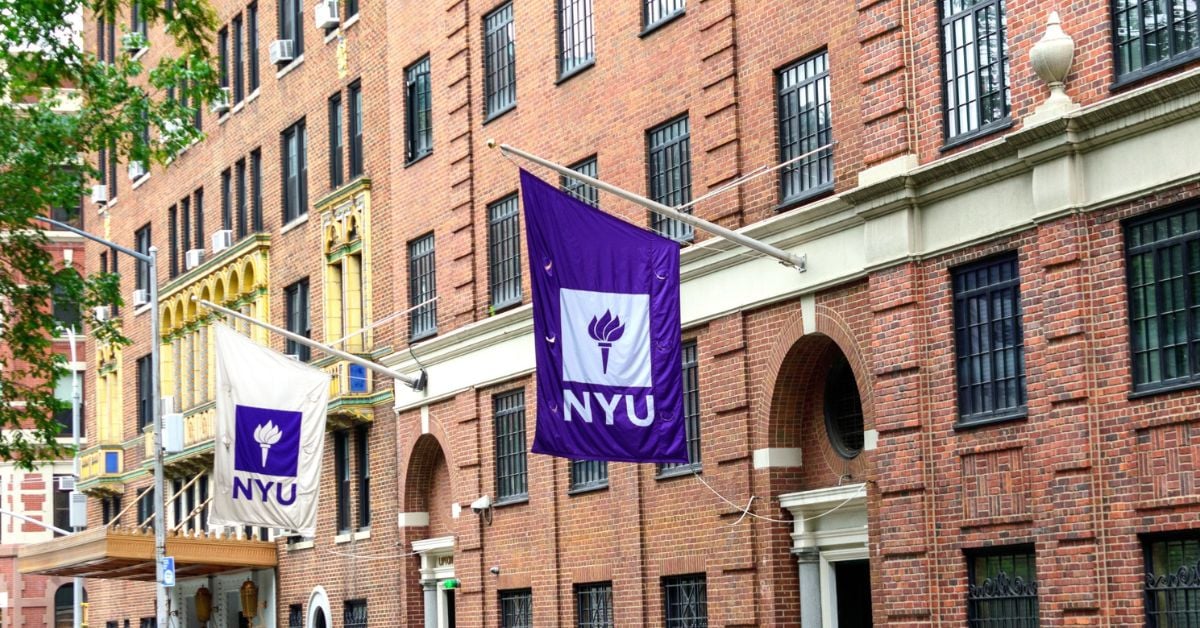
New York University, located in Greenwich Village, New York City, is a renowned private research university. NYU was founded in 1831, offers diverse programs, and boasts a vibrant campus life. The university has campuses in New York, Abu Dhabi, and Shanghai and is known for the institution’s global perspective. NYU Law, established in 1835, is the oldest law school in New York State, offering rigorous academic programs and producing influential alumni. NYU Law offers a comprehensive Juris Doctor (JD) program and advanced degrees like the Master of Laws (LLM) and Doctor of Juridical Science (JSD). Joint degree programs are available. The curriculum includes foundational courses, numerous electives, and experiential learning opportunities through clinics and internships. NYU Law Schools for Constitutional Law are recognized for providing students with robust academic and practical training.
NYU Law is highly selective, with an acceptance rate of approximately 16.8%. The competitive admissions process attracts top-tier students meeting high academic and professional standards. Admitted students have GPAs ranging from 3.77 to 3.96 and a median LSAT score of 172. The metrics reflect the high admission standards of NYU Law Schools for constitutional law and the competitive nature of the institution’s applicant pool. Tuition for NYU Law is $79,954 per year, and the estimated total cost of attendance is approximately $118,137 annually. The estimate covers housing, food, health insurance, and other personal expenses. NYU Law School is considered a worthwhile investment by students because of the institution’s high-quality education and strong career prospects, despite the high cost.
NYU Law ranks 9th nationally according to U.S. News & World Report. Law school specialty rankings place NYU Law 5th in Constitutional Law, 4th in Business/Corporate Law, and 2nd in Clinical Training. The school’s strong academic reputation of NYU Law School for constitutional law is supported by distinguished faculty and successful alumni. NYU offers specialized constitutional law, taxation, and international legal studies programs. The programs start with a required introductory course covering key topics, including judicial review, separation of powers, federalism, equality, and liberty. Students specialize through advanced courses and seminars on topics like free speech, religion, and comparative constitutional law. The university enhances the institution’s prestige through specialized programs that are recognized as one of the best law schools in New York.
NYU Law boasts a distinguished faculty with expertise in constitutional law. Notable faculty members include Samuel Issacharoff, who specializes in civil procedure and voting rights, and Kenji Yoshino, known for his work in antidiscrimination law and literature. Trevor Morrison, Dean Emeritus, is recognized for his scholarship on executive power. NYU Law schools for constitutional law benefit greatly from the expertise of their esteemed faculty. NYU Law offers numerous clinical opportunities for students interested in constitutional law. The school’s clinics provide practical experience in public policy, civil rights, and racial justice. Students engage in hands-on legal work under the supervision of experienced attorneys. NYU Law schools for constitutional law ensure students gain real-world experience addressing constitutional issues.
NYU Law’s alumni network includes prominent figures in constitutional law. Notable alumni like Richard Pildes and Rachel Barkow have significantly contributed to the field. Trevor Morrison, former dean of NYU Law, is a notable alumnus. The strong network of NYU Law schools for constitutional law supports students’ professional growth and career opportunities. NYU Law provides a comprehensive range of courses in constitutional law. The curriculum includes foundational courses on constitutional structure, rights, and interpretation. Advanced seminars cover topics like presidential power, sex discrimination, and the law of democracy. Specific courses include “First Amendment Law,” “Equal Protection,” and “Executive Power.” The courses ensure students at NYU Law School for constitutional law develop a deep understanding of constitutional principles and applications.
Graduates of NYU Law have excellent employment outcomes, particularly in fields related to constitutional law. Several alumni secure positions in prestigious law firms, public interest organizations, and government agencies. Ten months after graduation, 94.7% of students are successfully employed. NYU Law schools for constitutional law have strong reputations, contributing to high job placement rates.
4. Yale Law School
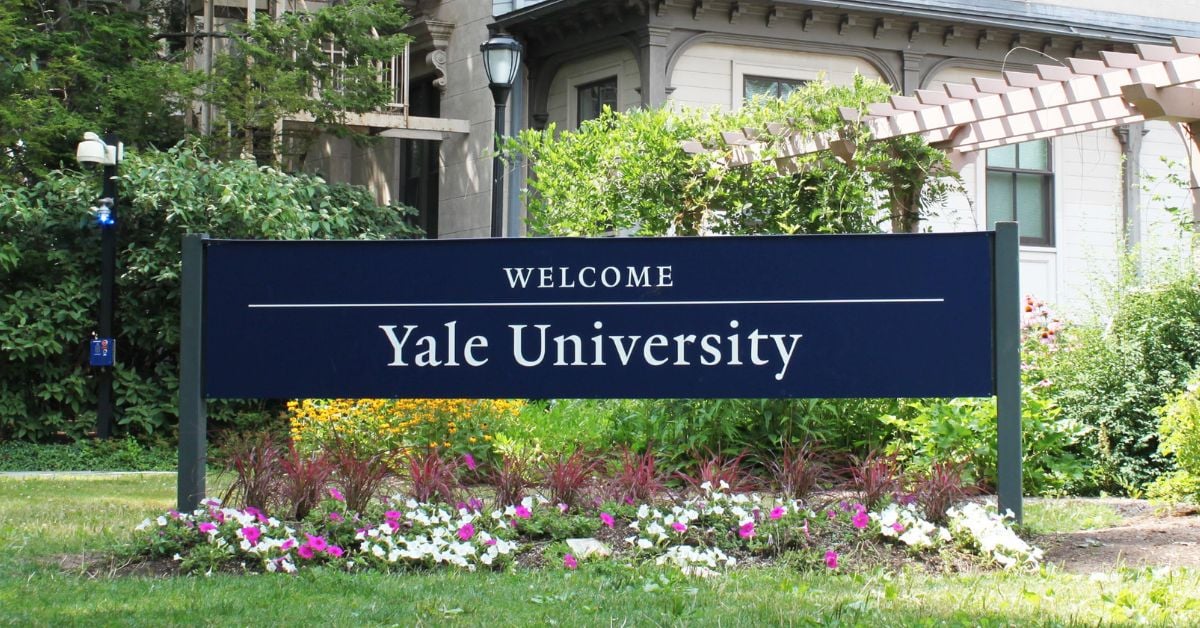
Yale University, located in New Haven, Connecticut, was established in 1701. The university is known for the institution’s prestigious academic programs and influential alumni. Yale University comprises multiple schools, including the renowned Yale University School of Law. Yale has a rich history and a strong commitment to academic excellence, particularly among law schools for constitutional law, as one of the oldest universities in the United States. Yale University School of Law offers a Juris Doctor (JD) program and advanced degrees, including the Master of Laws (LLM) and Doctor of the Science of Law (JSD). The flexible curriculum allows students to tailor their studies, focusing on legal research, writing, and doctrine. The diverse range of electives enables students to specialize in areas of interest, emphasizing law schools for constitutional law.
Yale Law School’s acceptance rate is 5.58%, reflecting the institution’s highly selective nature. The median GPA for the class of 2026 is 3.89, ranging from 3.25 to 4.00. The median LSAT score is 172, ranging from 158 to 177. The statistics highlight the competitive admissions process for constitutional law at top law schools. The annual tuition for the 2024-2025 academic year at Yale Law is approximately $76,369. The total estimated cost of attendance is around $93,923, including fees, living expenses, and other costs. Yale Law offers need-based financial aid, including loans and grants, but does not provide merit-based scholarships, making it one of the more costly law schools for constitutional law.
Yale University is ranked No. 1 among top law schools in the United States by U.S. News & World Report. The university ranks fourth in the QS World University Law and Legal Studies Rankings. Yale ranks highly in various specialties, including No. 3 in constitutional law, reflecting the institution’s esteemed reputation among law schools for constitutional law. Yale Law’s specialized programs in constitutional law include the Constitutional Litigation Clinic, the Supreme Court Advocacy Clinic, and the Arthur Liman Center for Public Interest Law. The Information Society Project explores issues at the intersection of law, technology, and society. The programs provide hands-on experience and resources, establishing Yale as a constitutional law school leader.
Yale University School of Law features prominent scholars in constitutional law, including Akhil Reed Amar, Jack Balkin, and Justin Driver. Amar is renowned for his work on constitutional interpretation and the Bill of Rights. Balkin directs Yale’s Information Society Project, specializing in constitutional theory and free speech. Driver authored The Schoolhouse Gate, exploring constitutional law in public education, establishing Yale among the top law schools for constitutional law. Yale Law offers numerous clinical programs allowing students to gain hands-on experience in constitutional law. Programs include the Constitutional Litigation Clinic, where students engage in real-world constitutional issues. The Supreme Court Advocacy Clinic allows students to work on Supreme Court cases. Other clinics focus on civil rights, election law, and public interest law, offering practical experiences and solidifying Yale’s reputation among law schools for constitutional law.
Yale Law’s alumni network includes influential figures in constitutional law, such as Sonia Sotomayor, Clarence Thomas, and Hillary Rodham Clinton. Sotomayor and Thomas serve as Associate Justices of the U.S. Supreme Court. Clinton has been a prominent figure in American politics and law. The notable alumni enhance Yale’s status among law schools for constitutional law, providing valuable networking opportunities. Yale Law provides a comprehensive curriculum in constitutional law, including courses like Constitutional Law, Federal Courts, and advanced seminars. Topics cover the First Amendment, the Supreme Court’s role, and constitutional theory. The curriculum is designed to give students a deep understanding of constitutional principles and their application in various legal contexts. Yale’s curriculum ranks highly among law schools for constitutional law.
Graduates of Yale Law have excellent employment outcomes, particularly in fields related to constitutional law. Alumni secure positions in prestigious law firms, public interest organizations, and government agencies. 85.9% of graduates are employed within ten months of graduation. The impressive employment statistics highlight Yale’s effectiveness among law schools for constitutional law, ensuring successful career paths for the institution’s graduates.
5. Stanford Law School

Stanford University, located in Palo Alto, California, was established in 1885 by Leland and Jane Stanford. The university is known for the institution’s strong emphasis on interdisciplinary education and innovative research. Stanford University comprises multiple schools, including the prestigious Stanford University School of Law. The university has a rich history and a strong academic reputation among law schools for constitutional law as one of the leading universities in the United States. Stanford University School of Law offers a Juris Doctor (JD) program and advanced degrees such as the Master of Laws (LLM) and Doctor of the Science of Law (JSD). The curriculum includes a combination of required courses and various electives. Experiential learning is emphasized through clinics, practicums, and the Law and Policy Lab. The flexible curriculum ranks highly among law schools for constitutional law.
Stanford Law is highly selective, with an acceptance rate of approximately 7.3%. Admitted students have a median LSAT score of 171 and a median undergraduate GPA of 3.95. The admissions process considers academic performance, work experience, and extracurricular activities. The competitive admissions statistics reflect Stanford’s prestigious status among law schools for constitutional law. The tuition for Stanford Law is approximately $64,350 per year. The total cost of attendance is around $107,055 annually, including additional fees and living expenses. Financial aid is available through need-based grants, loans, and fellowships. The high cost of attendance is offset by the comprehensive financial aid packages, making Stanford a top choice among law schools for constitutional law.
Stanford is ranked No. 1 (tie) in Best Law Schools by U.S. News & World Report. Specialty rankings include No. 3 in constitutional law and No. 1 in business/corporate law. Influential faculty and successful alumni further enhance the reputation of Stanford among law schools for constitutional law. Stanford Law offers specialized programs in constitutional law, including the Supreme Court Litigation Clinic and the Constitutional Law Center. Courses such as Constitutional Law, Federalism, Separation of Powers, and the First Amendment are part of the curriculum. The Law and Policy Lab allows students to engage in policy research and analysis on various constitutional topics.
Stanford University School of Law features renowned scholars in constitutional law, including Michael W. McConnell, Jeffrey L. Fisher, and Jane S. Schacter. McConnell, the Constitutional Law Center’s director, is a constitutional history expert. Fisher co-directs the Supreme Court Litigation Clinic and specializes in Supreme Court practice. Schacter is known for her work on constitutional politics, enhancing Stanford’s status among law schools for constitutional law. Stanford Law offers various clinical programs providing hands-on experience in constitutional law. The Supreme Court Litigation Clinic allows students to work on real cases before the Supreme Court. Other clinics, including the Constitutional Law Center and policy practicums, enable students to engage deeply with constitutional issues. The opportunities establish Stanford as a leader among law schools for constitutional law.
Stanford Law’s alumni network includes notable figures in constitutional law, including Sandra Day O’Connor and William Rehnquist. O’Connor was the first woman to serve on the U.S. Supreme Court. Rehnquist served as Chief Justice of the U.S. Supreme Court. The prominent alumni enhance Stanford’s reputation among law schools for constitutional law, providing valuable networking opportunities. Stanford Law provides a robust selection of courses in constitutional law, including Constitutional Law: Speech and Religion and Constitutional Law: The Fourteenth Amendment. Other courses include Executive Power Under the Constitution and the Supreme Court Litigation Clinic. The comprehensive curriculum gives students a deep understanding of constitutional principles, ranking Stanford highly among law schools for constitutional law.
Stanford Law graduates have excellent employment outcomes, particularly in fields related to constitutional law. Alumni secure prestigious clerkships, positions in top law firms, and roles in government agencies. Ten months after graduation, 86.2% of graduates succeed in the legal profession. Stanford’s strong reputation and extensive alumni network contribute to the institution’s standing among law schools for constitutional law.
6. UC Berkeley School Of Law
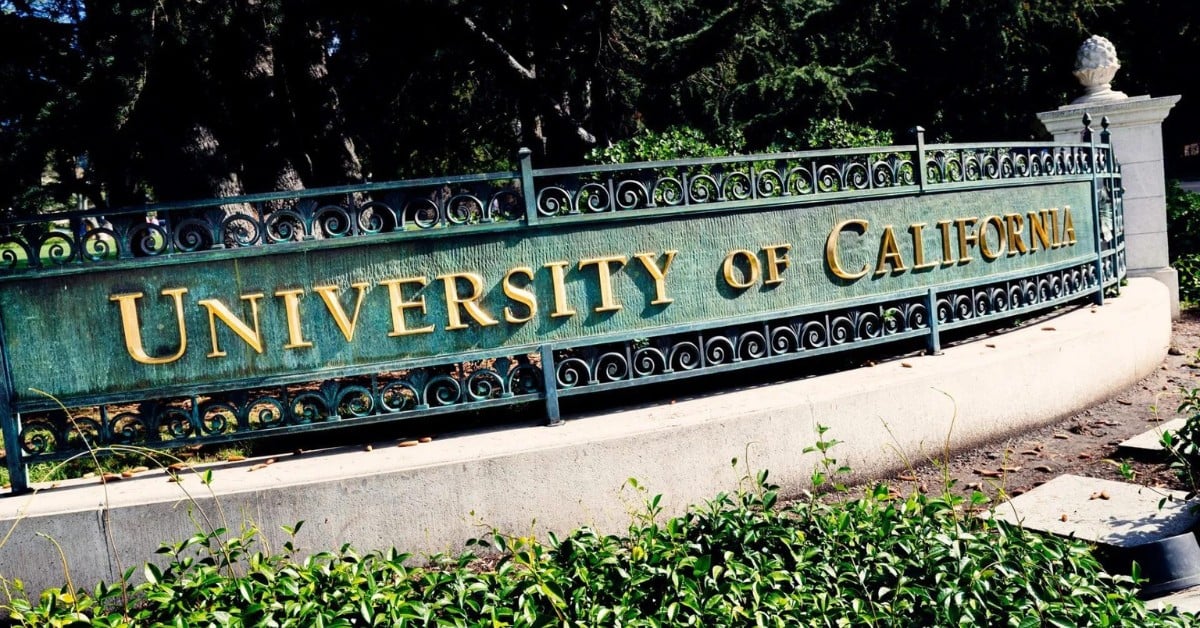
The University of California, Berkeley (UC Berkeley) is a prestigious public research university located in Berkeley, California. UC Berkeley, founded in 1868, is the flagship institution of the University of California system. The university is renowned for the law school’s rigorous academics, historic campus, and significant research contributions, making it a top choice for constitutional law. UC Berkeley offers various undergraduate and graduate programs across various fields, including humanities, sciences, engineering, business, and law. Berkeley Law, known as Boalt Hall, offers programs including the Juris Doctor (JD), Master of Laws (LLM), and Doctor of Juridical Science (JSD). Joint degree programs with other UC Berkeley departments further enhance the institution’s status among law schools for constitutional law.
UC Berkeley Law is highly selective, with an acceptance rate of approximately 11%. Applicants present strong academic credentials, with median LSAT scores around 168 and median undergraduate GPAs around 3.79. The competitive rate reflects the rigorous admissions process, which evaluates candidates based on academic achievements and personal statements. The thorough evaluation solidifies Berkeley Law’s reputation among law schools for constitutional law. Estimated tuition and fees for JD students in the 2024-25 academic year are $63,196 for California residents and $75,624 for non-residents. The total cost of attendance, including living expenses, is approximately $100,224 for residents and $112,652 for non-residents. Financial aid options include scholarships, grants, and loan programs, making UC Berkeley accessible among law schools for constitutional law.
UC Berkeley Law is ranked #15 in National Universities (tie) by U.S. News & World Report. The university is particularly noted for its intellectual property law, environmental law, and business/corporate law programs, maintaining high rankings among law schools for constitutional law. Berkeley Law offers a comprehensive program in constitutional law featuring various courses and seminars. Key programs include the Public Law and Policy Program, the Berkeley Center for Law and Technology, and the Environmental Law Program. Students engage in hands-on learning through clinics and externships, solidifying Berkeley’s reputation among law schools for constitutional law.
UC Berkeley Law boasts a distinguished faculty specializing in constitutional law. Notable scholars include Khiara M. Bridges, who focuses on civil rights, critical legal theory, and reproductive rights. Daniel Farber, Sho Sato Professor of Law, specializes in administrative, constitutional, and environmental law. John Yoo, Emanuel S. Heller Professor of Law, is known for his work in constitutional law, national security, and international law. Faculty expertise makes UC Berkeley one of the best law schools in California for constitutional law. UC Berkeley Law offers several hands-on learning opportunities in constitutional law through clinics and externships. The Veterans Law Practicum provides students with experience in legal issues affecting veterans, including constitutional claims. The Ninth Circuit Practicum allows students to work on real cases before the Ninth Circuit Court of Appeals. Clinical opportunities place UC Berkeley among the leading law schools for constitutional law.
UC Berkeley Law has a strong network of alumni excelling in constitutional law. Edwin Meese III, former United States Attorney General, is known for his work on constitutional issues during the Reagan Administration. Goodwin Liu, Associate Justice of the California Supreme Court, contributes significantly to constitutional law and education rights. Networking and alumni connections enhance UC Berkeley’s reputation among law schools for constitutional law. Berkeley Law’s curriculum includes a comprehensive array of courses in constitutional law. The core course, Constitutional Law, covers the structure of the Constitution, judicial review, and federalism. The First Amendment Law examines issues related to free speech, religion, and expression. Civil Rights Litigation focuses on enforcing constitutional rights through litigation. Course offerings make Berkeley one of the top law schools for constitutional law.
Berkeley Law graduates specializing in constitutional law have impressive employment outcomes. 96.38% of graduates secure employment within nine months of graduation. Several alumni obtain prestigious judicial clerkships, including positions at the U.S. Supreme Court. Graduates find roles in top-tier law firms, governmental agencies, and public interest organizations. Employment outcomes highlight Berkeley’s strength among law schools for constitutional law.
7. Columbia Law School
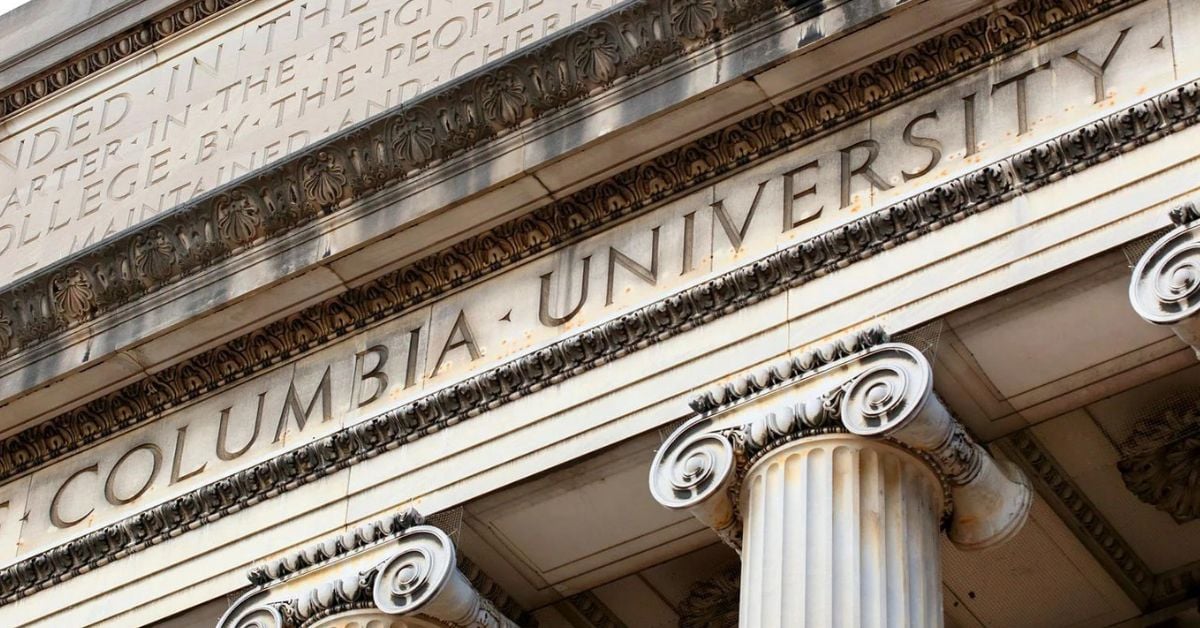
Columbia University, located in New York City, is a prestigious Ivy League institution renowned for its rigorous academic programs and significant contributions to research and scholarship. Columbia University, founded in 1754, is one of the oldest universities in the United States and has a rich history of producing influential alumni in various fields. The legacy makes the institution one of the top law schools for constitutional law. Columbia University offers various undergraduate, graduate, and professional programs across various disciplines. Columbia Law School, established in 1858, offers degrees such as the Juris Doctor (JD), Master of Laws (LLM), and Doctor of the Science of Law (JSD). The law school provides joint degree programs and specialized certificates, enhancing the institution’s status among law schools for constitutional law.
Columbia Law School is highly selective, with an acceptance rate of approximately 12.2%. The median LSAT score for admitted students is 173, and the median undergraduate GPA is 3.9. The diverse student body represents over 40 countries and includes 52% women, reflecting the institution’s commitment to diversity among law schools for constitutional law. The tuition for the JD program at Columbia Law School is approximately $79,320 per year. The total cost of attendance, including living expenses and other fees, is around $107,625 annually. Financial aid is available, with about 74% of students receiving financial assistance, making Columbia Law School one of the most accessible law schools for constitutional law.
Columbia Law School is consistently ranked among the top law schools in the United States and globally. The university is ranked 6th by U.S. News & World Report and 8th worldwide by QS World Rankings. The law school is particularly noted for strong programs in corporate law, international law, and constitutional law, solidifying the school’s position among top law schools for constitutional law. Columbia Law School offers a robust array of programs and courses in constitutional law. Key programs include the Center for Constitutional Governance, Knight First Amendment Institute, and Human Rights Institute. The Constitutional Rights Clinic provides hands-on experience in constitutional litigation, allowing students to work on real constitutional rights cases. The hands-on approach showcases the institution’s strength among law schools for constitutional law.
Columbia Law School is home to several prominent scholars in constitutional law. Jamal Greene, Dwight Professor of Law, specializes in constitutional theory and the First Amendment. Gillian Metzger, Harlan Fiske Stone Professor, focuses on administrative law and federalism. Jessica Bulman-Pozen, Betts Professor of Law, is known for her work on administrative law. Faculty expertise places Columbia among the top law schools for constitutional law. Columbia Law School offers various clinical programs focused on constitutional law, providing students with practical experience. The Human Rights Clinic engages students in cases involving civil and political rights. The First Amendment Clinic provides hands-on experience defending free speech and press rights. Clinical opportunities enhance Columbia’s reputation as one of the leading law schools for constitutional law.
Columbia Law School’s alumni network includes notable figures in constitutional law. Ruth Bader Ginsburg, former U.S. Supreme Court Associate Justice, worked on gender equality. Eric Holder, former U.S. Attorney General, contributed to civil rights enforcement. William Kunstler, a civil rights attorney, defended controversial cases involving constitutional rights. Alumni connections strengthen Columbia’s status among law schools for constitutional law. Columbia Law School provides a robust selection of courses in constitutional law. The core course, Constitutional Law, covers the structure and interpretation of the U.S. Constitution. Advanced Constitutional Law explores complex issues of constitutional governance. The First Amendment Law focuses on speech, press, and religion protections. Course offerings make Columbia one of the top law schools for constitutional law.
Columbia Law School graduates specializing in constitutional law have strong employment prospects. 96.8% of graduates secure employment within ten months of graduation. The graduates obtain prestigious judicial clerkships, including positions at the U.S. Supreme Court. Graduates pursue careers in top law firms, governmental agencies, and public interest organizations. Employment outcomes highlight Columbia’s strength among law schools for constitutional law.
8. University Of Michigan Law School
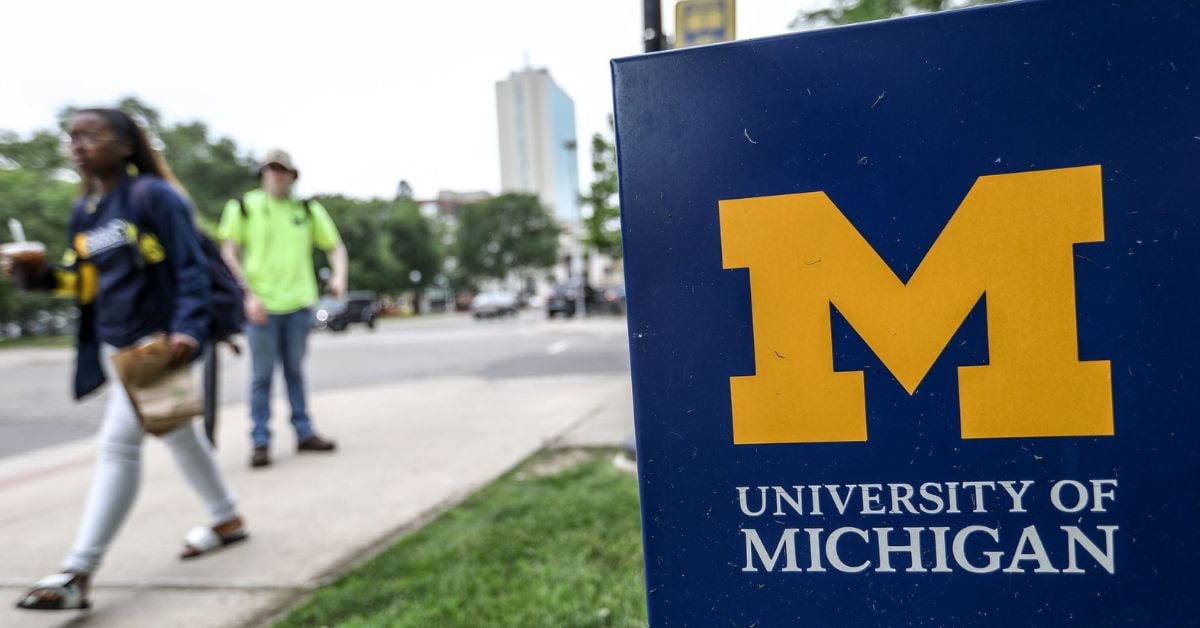
The University of Michigan (Ann Arbor), a prestigious public research university, was founded in 1817. The University of Michigan, renowned for academic excellence and significant contributions to various fields, offers diverse programs. The Law School, established in 1859, is particularly renowned among law schools for constitutional law, providing high-quality education and research opportunities to students. The University of Michigan Law School offers Juris Doctor (JD), Master of Laws (LLM), and Doctor of the Science of Law (SJD) programs. Joint degree programs and specialized certificates enhance the curriculum. The University of Michigan provides comprehensive legal education, fostering expertise through rigorous academic programs and practical experiences in constitutional law. The approach ensures a well-rounded understanding of the subject for its students.
The University of Michigan Law School is highly selective, with an acceptance rate of approximately 18%. Incoming students have a median LSAT score of 171 and a median GPA of 3.85. The University of Michigan stands out among law schools for constitutional law, attracting top-tier students with strong academic credentials. Michigan residents pay $64,098 per year in tuition and fees, while non-residents pay $69,918 annually for the 2024-25 academic year. The University of Michigan offers financial aid and scholarships to help offset costs. The University ensures access to education through financial support for constitutional law among law schools.
The University of Michigan Law School is consistently ranked among the top ten law schools in the United States. The University of Michigan, ranked 10th by U.S. News & World Report, excels in academic programs, faculty, and alumni networks. The law school maintains a strong reputation recognized among law schools for constitutional law. The University of Michigan Law School offers specialized programs in constitutional law, including the Civil Rights Litigation Initiative and Constitutional Law Seminar. Additional programs include the Michigan Innocence Clinic, focusing on wrongful convictions, and the Program in Race, Law & History. The Human Rights Clinic and Environmental Law and Policy Program provide hands-on experience. The University of Michigan offers robust theoretical and practical opportunities for constitutional law among law schools.
The University of Michigan Law School boasts several renowned experts in constitutional law. Richard Primus, the Theodore J. St. Antoine Collegiate Professor of Law, is highly regarded for his work on the relationship between history and constitutional interpretation. Leah Litman focuses on constitutional law, federal courts, and federal post-conviction review. Daniel Halberstam is known for his theory of constitutional pluralism, making the University of Michigan one of the top law schools for constitutional law. Michigan Law offers extensive clinical opportunities for students interested in constitutional law. The school’s clinics allow students to engage in practical legal work under the supervision of experienced faculty. Clinics cover various areas, including civil rights, criminal defense, and environmental law. Michigan Law provides hands-on experience with constitutional issues in diverse legal contexts, standing out among law schools for constitutional law.
Michigan Law has a strong network of alumni who have significantly contributed to constitutional law. Notable alumni include Justice Frank Murphy and Judge Amalya Lyle Kearse. Eric Holder, former U.S. Attorney General, is another prominent alumnus. The University of Michigan, among the best schools in Michigan, excels in law schools for constitutional law, with a distinguished alumni network. The curriculum at Michigan Law includes a comprehensive range of constitutional law courses. Core courses such as Introduction to Constitutional Law provide foundational knowledge. Advanced courses like Advanced Constitutional Interpretation and Comparative Constitutional Law explore specific aspects of the field. Other notable courses include Current Issues in Public Law Litigation, which makes Michigan Law a leader among law schools in constitutional law.
Graduates focusing on constitutional law at Michigan Law enjoy strong employment outcomes. The graduates in 2023 secured long-term, full-time legal jobs at a rate of 95.4%. The students pursue prestigious clerkships, including positions with the U.S. Supreme Court. Others find careers in public interest law, government agencies, and academia, highlighting the success of Michigan Law among law schools for constitutional law.
9. University Of Virginia School Of Law
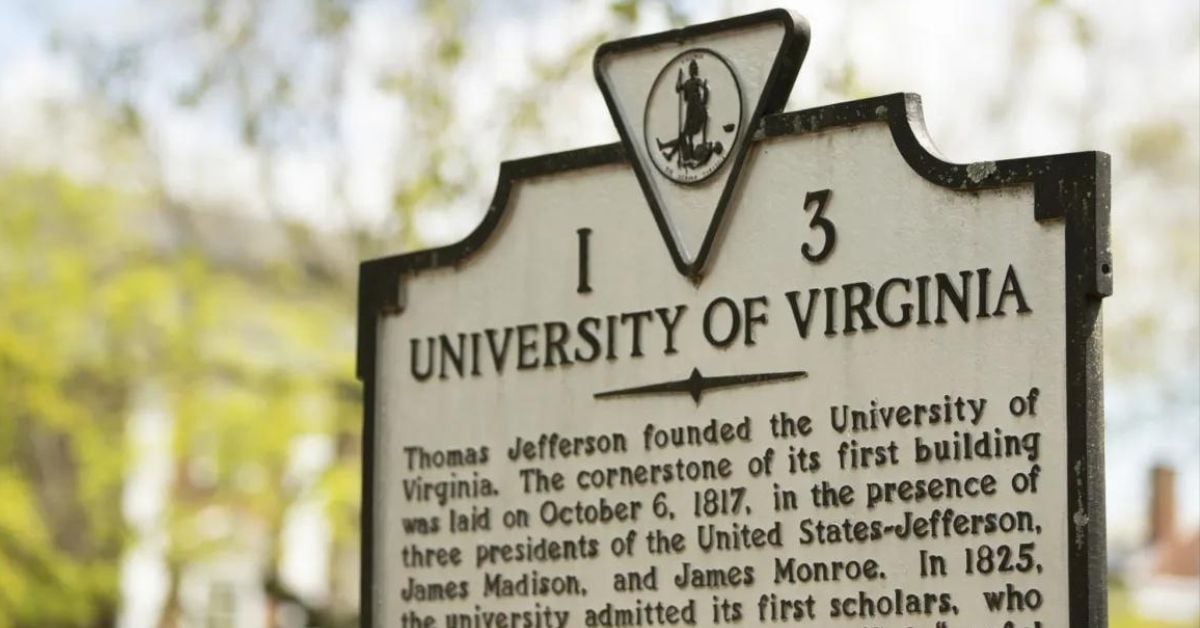
The University of Virginia School of Law, founded by Thomas Jefferson in 1819, is one of the oldest and most prestigious law schools in the United States. UVA Law, located in Charlottesville, Virginia, is renowned for the institution’s rigorous academic programs, distinguished faculty, and strong emphasis on public service and leadership. The university stands out for its historical significance and academic excellence among law schools in constitutional law. UVA Law offers a comprehensive legal education with various degree programs, including the Juris Doctor (JD), Master of Laws (LLM), and Doctor of Juridical Science (SJD). The J.D. The program includes foundational courses in the first year, followed by an extensive selection of upper-level courses and seminars. The school offers LL.M. and S.J.D. degrees, with specialized programs in constitutional law, international law, business law, and public service. The University of Virginia is noted among law schools for constitutional law because of its numerous clinics and externship opportunities.
The acceptance rate at the University of Virginia School of Law is highly competitive, with recent figures showing an acceptance rate of approximately 11.5%. The median LSAT score for admitted students is 171, and the median GPA is 3.94. UVA Law attracts top-tier students with strong academic credentials, reflecting the institution’s selective admissions process and its standing among law schools for constitutional law. Tuition and fees for Virginia residents are $71,200 annually, while non-residents pay $74,200 annually for the academic year 2024-2025. The costs reflect the school’s status as a top-tier law institution and the quality of education provided. Financial aid and scholarships help offset expenses, making UVA Law accessible among law schools for constitutional law.
UVA Law consistently ranks among the top law schools in the United States. The University is ranked fourth by U.S. News & World Report and seventh in constitutional law. The law school is highly regarded for the institution’s quality of life, best professors, and classroom experience. UVA Law maintains a strong reputation in legal education and is recognized among law schools for constitutional law. The University of Virginia School of Law offers an extensive program in constitutional law through the institution’s Program on Constitutional Law and Legal History. The specialized program provides students with a deep understanding of constitutional principles, historical contexts, and contemporary issues. Courses such as Constitutional Law, Advanced Constitutional Law, and seminars on specific constitutional issues are available. UVA Law, among law schools for constitutional law, offers clinics and externships focusing on constitutional litigation and public policy.
The University of Virginia School of Law boasts several renowned experts in constitutional law. Professor Bertrall Ross, known for his work on legislative independence, electoral law, and inequality, has published extensively. Professor David Law, an expert in comparative constitutional law, studies judicial systems globally. Professor A. E. Dick Howard, a leading authority, has significantly contributed to the study of constitutional law. UVA Law stands out for the institution’s faculty expertise in constitutional law among law schools. UVA Law offers robust clinical opportunities in constitutional law. The Supreme Court Litigation Clinic provides students with hands-on experience in litigating before the U.S. Supreme Court. Students participate in drafting briefs and preparing for oral arguments, gaining invaluable insights into high-stakes constitutional litigation. The First Amendment Clinic allows students to work on freedom of speech, press, and assembly cases. UVA Law provides practical experience and stands out among law schools for constitutional law.
UVA Law’s alumni network includes several prominent figures in constitutional law. Risa Goluboff, the first female dean of UVA Law, focuses on civil rights and constitutional law. Ted Olson, a distinguished alumnus, served as U.S. Solicitor General and argued the landmark case of Bush v. Gore. UVA Law, a leader in constitutional law education, has a significant alumni presence and is recognized as one of the best law schools in Virginia. The law school offers a comprehensive array of courses in constitutional law. Core courses include Constitutional Law and Advanced Constitutional Law, providing foundational and advanced knowledge. Specialized courses, including First Amendment Law, Federal Courts, and Civil Rights Litigation, allow students to explore specific areas in depth. The courses equip students with a thorough understanding of constitutional principles. UVA Law’s curriculum is highly regarded among law schools for constitutional law.
Graduates focusing on constitutional law at UVA Law enjoy strong employment outcomes. The school ranks highly in employment rates, with 96.3% of the Class of 2022 securing full-time, long-term, JD-required positions within ten months of graduation. Several graduates pursue prestigious clerkships, including positions with the U.S. Supreme Court. UVA Law, a leader among law schools for constitutional law, prepares students for successful careers.
10. Duke University School Of Law
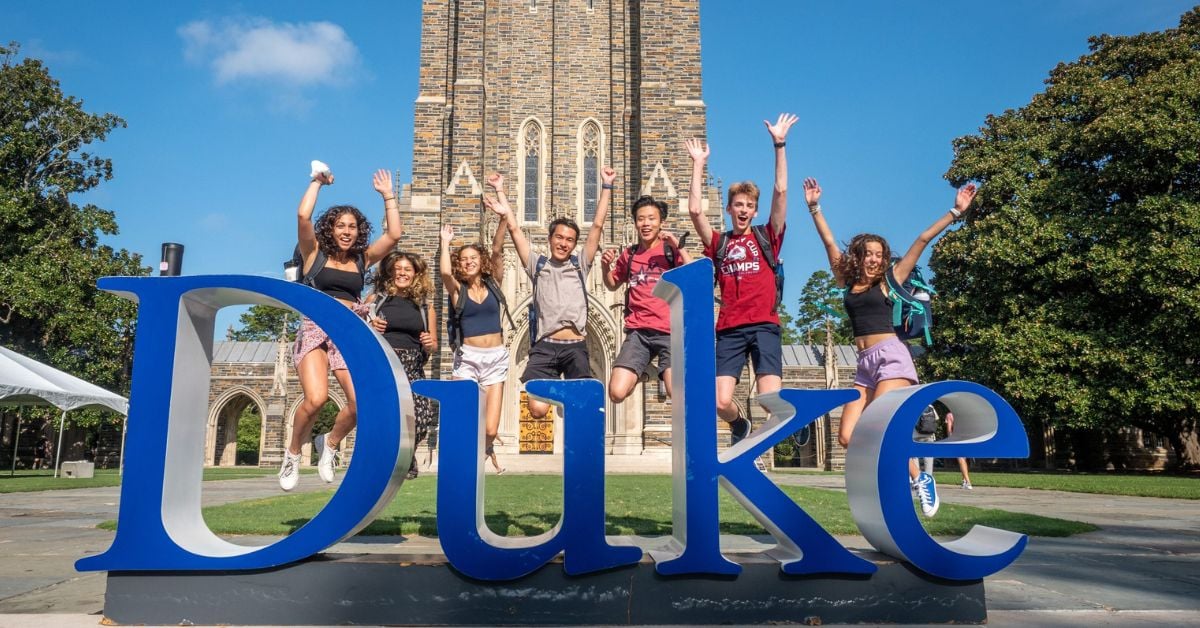
Duke University, established in 1838, is a prestigious private research university located in Durham, North Carolina. Duke University fosters an environment of innovation and collaboration known for its rigorous academic programs. The university offers various undergraduate, graduate, and professional programs. Duke Law offers comprehensive legal education through programs including the Juris Doctor (JD), Master of Laws (LLM), and Doctor of Juridical Science (SJD). The JD program includes foundational courses, advanced electives, and dual degree options. Duke emphasizes practical skills through extensive clinical and externship opportunities.
Duke Law has a competitive acceptance rate of approximately 10.5%. The median LSAT score for admitted students is 170, with a median GPA of 3.87. The university reflects high academic standards, admitting only top-performing students. The selective admission process ensures a rigorous and enriching academic environment. Tuition and fees for the JD program at Duke Law are $77,100 for the academic year 2024-2025. Additional costs for medical insurance, fees, and living expenses bring the total estimated cost to approximately $109,398 per year. The law school provides financial aid and scholarships, with a high percentage of students receiving grants averaging $30,000.
Duke University is ranked No. 4 (tie) out of 196 in Best Law Schools. The law school program rankings include #10 in Constitutional Law and #7 in Criminal Law (tie). Duke University is known for the school’s exceptional faculty, interdisciplinary studies, and high-quality legal education. Graduates achieve excellent Bar exam pass rates and employment outcomes. Duke Law offers specialized programs in constitutional law, featuring courses such as Constitutional Law, First Amendment, Federal Courts, and Comparative Constitutional Law. Distinguished faculty members provide in-depth knowledge and practical insights. The university includes clinics and externships, offering hands-on experience in constitutional litigation and policy work.
Duke Law boasts several renowned scholars in constitutional law. Neil S. Siegel, the David W. Ichel Professor of Law, focuses on constitutional theory and politics. Siegel’s research addresses collective-action federalism and separation of powers, considering how historical practices and norms shape governance. Duke University Law School excels in constitutional law, benefiting from Jedediah Purdy’s exploration of constitutional democracy and Brandon L. Garrett’s investigation into constitutional rights. Duke Law offers extensive clinical programs, allowing students to gain practical experience in constitutional law. The First Amendment Clinic, directed by Sarah Ludington, provides opportunities to work on cases involving free speech and privacy rights. The Civil Justice Clinic engages students in litigation and advocacy on civil rights issues. The university includes the Civil Rights Clinic, offering hands-on experience in representing clients.
Duke Law’s robust alumni network includes influential figures in constitutional law. Notable alumni include Kenneth Starr, former U.S. Solicitor General and independent counsel during the Clinton administration, and Walter Dellinger, former acting U.S. Solicitor General. Duke benefits from alumni who have significantly contributed to developing and interpreting constitutional law in the United States. Duke Law’s curriculum includes a wide range of courses in constitutional law. Students take foundational courses such as Constitutional Law and more specialized offerings like Constitutional Theory, Federal Courts, and the First Amendment. Duke University’s constitutional law program is enriched by the Program in Public Law and the Richard A. Horvitz Program. The initiatives organize conferences, workshops, and lectures on constitutional issues.
Graduates from Duke Law focusing on constitutional law pursue diverse career paths, including positions in academia, government, and private practice. Employment rates for graduates are high, with 98.1% employed 10 months after graduation. Duke University’s constitutional law program ensures students are well-prepared for their careers. Graduates contribute to public discourse and advance legal standards through clerkships and experiential learning.
How To Choose The Best Constitutional Law Program?
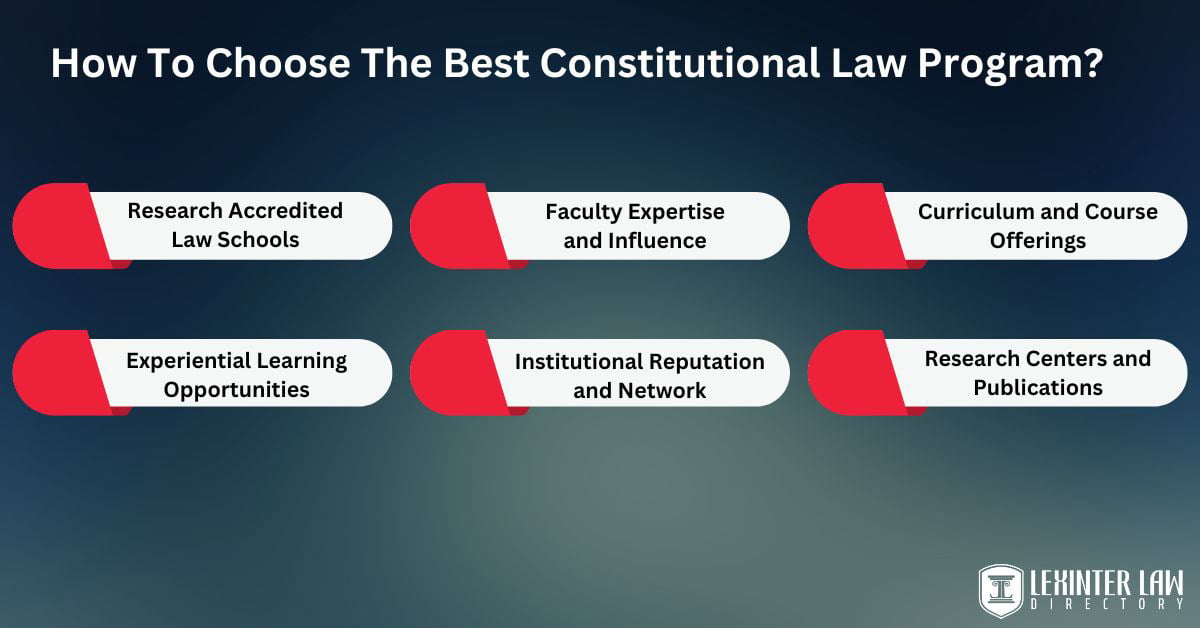
To choose the best constitutional law program, follow the 6 steps listed below.
- Research Accredited Law Schools. Ensure law schools for constitutional law are accredited by recognized bodies like the American Bar Association. Accreditation ensures the program meets high educational standards. An accredited degree is recognized by employers and institutions, enhancing an individual’s career prospects. Research the accreditation status of all considered law schools for constitutional law to ensure quality education.
- Faculty Expertise and Influence. Investigate the qualifications and influence of faculty members at law schools for constitutional law. Top programs feature professors who are renowned scholars and are involved in significant constitutional debates. Faculty expertise greatly enhances the learning experience and provides valuable mentorship. Choose law schools for constitutional law with highly qualified faculty members.
- Curriculum and Course Offerings. Examine the breadth and depth of constitutional law courses at law schools for constitutional law. Look for programs covering judicial review, federalism, civil rights, and the First Amendment. A diverse curriculum ensures a well-rounded education in constitutional law. Select law schools for constitutional law offering comprehensive courses.
- Experiential Learning Opportunities. Assess the availability of clinics, externships, and moot court programs for constitutional law at law schools. Practical training is crucial for applying theoretical knowledge to real-world situations. The opportunities allow hands-on experience and skill development. Choose law schools for constitutional law with extensive experiential learning opportunities.
- Institutional Reputation and Network. Consider the overall reputation and network of law schools for constitutional law. A prestigious program with a strong alumni network provides extensive networking opportunities. Networking with influential alumni and professionals aids career advancement. Select law schools for constitutional law with a strong reputation and network.
- Research Centers and Publications. Look for law schools for constitutional law that support research through dedicated centers and law reviews. Engaging in cutting-edge research and scholarly discourse enhances academic experience and resumes. Involvement in research centers and publications is valuable. Choose law schools for constitutional law with strong research support.
What Is Constitutional Law?
Constitutional law is a body of law that defines the structure, roles, and powers of various entities within a state, including the executive, legislature, and judiciary. The law delineates citizens’ basic rights and freedoms and governs relationships between different branches of government and between the central government and subnational entities like states or provinces. Constitutional law originates from a ratified constitution or similar charter and serves as the foundation for governmental functions. Law schools for constitutional law provide the necessary education to understand and apply the principles effectively. The study of constitutional law is crucial because it is considered the supreme law of the land.
Constitutional law covers several key areas, including government structure, human rights and civil liberties, legislative procedures, judicial review, and federalism. Government structure is a primary focus, establishing the organization of the government and defining the separation of powers among the executive, legislative, and judicial branches. The separation ensures a system of checks and balances, preventing any single branch from gaining excessive power. Constitutional law schools emphasize the areas to prepare students for real-world legal challenges. Legislative procedures are covered, outlining how laws are made, amended, and enforced. Judicial review is another vital component of constitutional law, granting courts the authority to interpret the Constitution and invalidate laws or governmental actions that are unconstitutional. The principle maintains the Constitution’s supremacy and ensures all laws and actions comply with constitutional mandates. Federalism is a key area that defines the distribution of powers between the central government and subnational units like states or provinces. Law schools for constitutional law provide in-depth knowledge of federalism, helping students understand states’ rights and the resolution of conflicts between different government levels. A constitutional law degree equips students with the expertise for high-level legal practice and scholarship in critical areas.
What Is The Purpose Of Constitutional Law?
The purpose of constitutional law is to establish and regulate the framework within which a government operates. Constitutional law sets the fundamental principles of a state, defining the roles and powers of various government branches and protecting citizens’ basic rights and freedoms. The establishment of a government structure is a primary purpose of constitutional law. Constitutional law defines the organization of the government, including the separation of powers among the executive, legislative, and judicial branches. A key function of constitutional law is ensuring a balanced distribution of authority and preventing any single branch from becoming too powerful. Law schools for constitutional law emphasize understanding the principles to prepare future legal professionals effectively.
The protection of fundamental rights is another critical purpose of constitutional law. A primary purpose of constitutional law is to safeguard individual rights and civil liberties. The rights, including freedom of speech, the right to a fair trial, and protection against unreasonable searches and seizures, are enshrined in a bill of rights or similar constitutional documents. The constitutional documents safeguard individuals’ liberties and ensure justice. Constitutional law thus ensures that citizens are protected from arbitrary government actions and exercise their freedoms without undue interference. Law schools for constitutional law provide in-depth knowledge of the protections, preparing students to defend essential rights.
Constitutional law works through written documents, judicial interpretations, and legislative actions. The written constitutions, like the U.S. Constitution, provide a formal and authoritative set of rules and principles. Courts, especially higher courts, interpret the rules and resolve disputes that arise from their application. Legislative bodies create and amend laws within the framework set by the Constitution, while executive agencies enforce the laws. Law schools for constitutional law train students to navigate complex processes, ensuring they effectively contribute to the legal system. The comprehensive approach ensures that constitutional law remains a living document, adaptable to changing societal needs.
What Is the Best Major For Constitutional Law?
Political science is the best major for constitutional law. The major provides a comprehensive foundation for understanding governmental structures, political theories, and public law, which are integral to constitutional law practice. Political science programs cover topics directly relevant to constitutional law, including American government, political theory, and public policy. Understanding the separation of powers, federalism, and the judiciary’s role is crucial for analyzing constitutional issues. Courses in American government focus on the structure and functions of the U.S. government, including the legislative, executive, and judicial branches, highlighting the Constitution’s role in shaping the institutions.
Political theory explores the philosophical underpinnings of political systems and constitutional governance. Key topics include social contract theory, democracy, and justice, essential for a deep understanding of constitutional principles. Public law courses focus on interpreting and applying the Constitution. Students study landmark Supreme Court cases, civil rights, and liberties, providing practical insights into how constitutional law is applied in real-world scenarios. Political science majors engage in rigorous research and analytical projects, enhancing their ability to dissect complex legal issues. Analyzing intricate issues is vital for constructing compelling arguments and succeeding in constitutional law.
Political science programs offer experiential learning opportunities, such as internships, moot court competitions, and participation in political campaigns. The experiences allow students to apply theoretical knowledge in practical settings, preparing them for law school and a career in constitutional law. Graduates with a political science major are well-prepared to excel in top law schools for constitutional law, such as Harvard, Yale, and Stanford. The institutions offer specialized courses and clinics that build on the foundation provided by a political science undergraduate degree. The specialized courses and clinics enable students to deepen their expertise in constitutional law and engage in high-level legal practice and scholarship.
How To Become A Constitutional Lawyer?
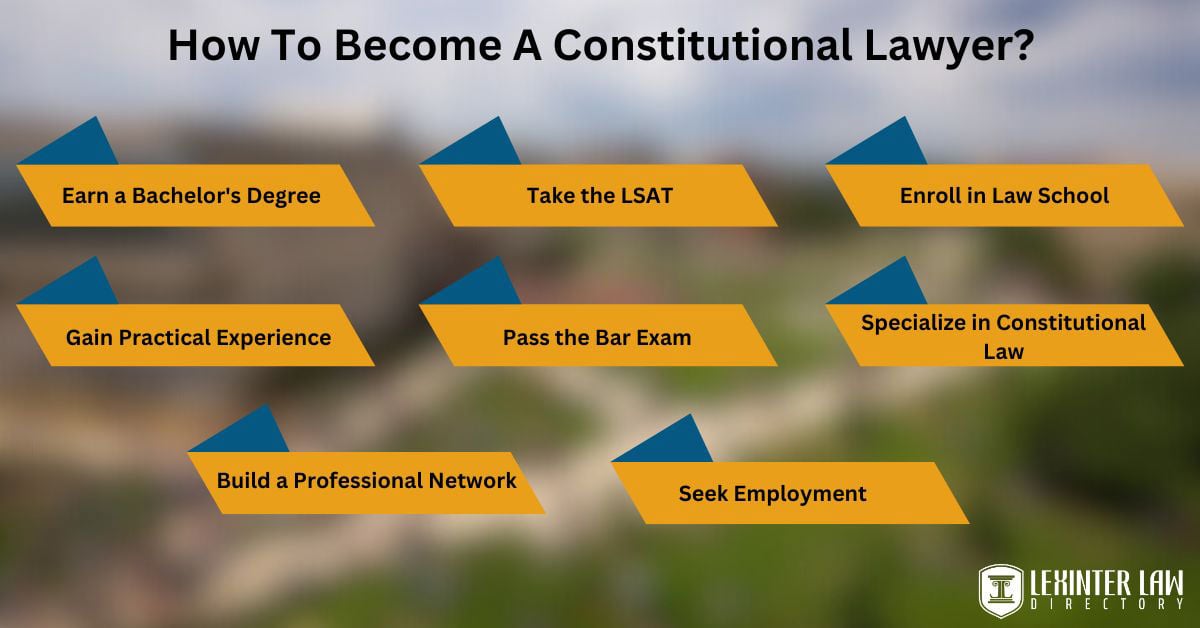
To become a constitutional lawyer, follow the 8 steps listed below.
- Earn a Bachelor’s Degree. Start with an undergraduate degree in political science, history, or law. The foundation is crucial for developing critical thinking and research skills. Law schools for constitutional law value applicants with a strong academic background. Choose relevant fields to build essential skills for a legal career. Ensure a solid academic record during undergraduate studies.
- Take the LSAT. The Law School Admission Test (LSAT) is required for admission to most law schools for constitutional law. Prepare thoroughly to achieve a competitive score. The LSAT is a key component of a law school application. Invest time in studying and taking practice tests. Aim for a high score to increase admission chances.
- Enroll in Law School. Attend an ABA-accredited law school and earn a Juris Doctor (J.D.) degree. Focus on courses related to constitutional law. Becoming a constitutional lawyer requires knowledge of constitutional theory, civil rights, and federalism. Law schools specializing in constitutional law offer specialized courses in constitutional theory, civil rights, and federalism. Select a program with a strong constitutional law curriculum.
- Gain Practical Experience. Participate in internships, clerkships, or legal clinics focusing on constitutional law during law school. Engaging in moot court competitions and working with experienced attorneys provides valuable practical experience. Law schools for constitutional law offer opportunities for hands-on learning. Seek out practical experiences to enhance skills. Build a strong resume with relevant experiences.
- Pass the Bar Exam. Pass the Bar exam in the state where practicing is planned after law school graduation. The Bar exam tests knowledge of general legal principles, including constitutional law. Law schools for constitutional law prepare students for the Bar exam. Study diligently to pass the exam. Meeting the requirement is essential for legal practice.
- Specialize in Constitutional Law. Gaining further expertise involves taking elective courses and pursuing certifications in constitutional law. Specialization enhances credentials and makes individuals more competitive in the job market. Law schools for constitutional law offer advanced courses and certification programs. Focus on building expertise in constitutional law. Specializing in the field opens many career opportunities.
- Build a Professional Network. Join professional organizations such as the American Constitution Society or the Federalist Society. Attend legal conferences, seminars, and workshops to network with other legal professionals. Law schools for constitutional law encourage networking to stay updated on developments. Building a strong professional network is crucial for career growth. Engage with peers and mentors.
- Seek Employment. Look for job opportunities in law firms, government agencies, non-profit organizations, or academia. Positions in civil rights organizations, the Department of Justice, or think tanks are ideal for individuals specializing in constitutional law. Law schools for constitutional law provide career services to help find suitable employment. Target roles that align with specialization and interests.
How Long Would It Take To Study Constitutional Law?
It would take approximately seven years to study constitutional law. The process starts with earning a Bachelor’s degree, which requires four years of undergraduate education. Students usually pursue degrees in political science, history, or related fields to build a solid foundation for law school. Completion of the degrees is followed by enrollment in law schools for constitutional law, requiring three years of full-time study to earn a Juris Doctor (J.D.) degree. Graduation is followed by preparation for the Bar exam, which generally involves two to three months of intensive study. Passing the Bar exam allows new lawyers to practice law and gain practical experience at law firms.
The duration and timeline of studying constitutional law span about seven years. Students complete four years of undergraduate education, majoring in fields like political science or history to build essential background knowledge. Law schools for constitutional law demand three years of rigorous study to obtain a Juris Doctor (J.D.) degree after earning a Bachelor’s degree. The law school curriculum includes core courses such as civil procedure, contracts, torts, criminal law, property, and constitutional law in the first year. The second and third years focus on specialized constitutional law courses, moot court, law review, internships, and externships. Passing the Bar exam requires an additional two to three months of dedicated preparation after law school. The comprehensive timeline ensures that students are well-prepared for a successful career in constitutional law.
Is Constitutional Law Difficult?
Yes, constitutional law is difficult. The U.S. Constitution’s broad and sometimes vague language requires deep interpretation to understand its implications. Legal professionals must analyze historical context, judicial precedents, and evolving societal values. Law schools for constitutional law emphasize the interpretive challenge, compounded by the document’s age and the need to reconcile its provisions with modern realities. The complexity increases as students and professionals navigate the intersections of political ideology and judicial philosophy. The Supreme Court’s justices interpret the Constitution through various lenses, such as textualism, originalism, or living constitutionalism. The differing approaches lead to varied legal outcomes, requiring scholars and practitioners to understand the judicial philosophies.
Constitutional law involves an extensive body of precedent. Courts rely on past decisions to guide current interpretations, meaning that understanding constitutional law requires familiarity with substantial case law. Precedents clarify and complicate constitutional questions, offering conflicting interpretations that legal professionals must reconcile. Law schools for constitutional law address fundamental questions about government structure, individual rights, and the balance of power between different branches and levels of government. The high-stakes issues lead to contentious legal battles, requiring a nuanced understanding of legal principles and broader societal implications. The difficulty of constitutional law stems from interpretive demands, ideological influences, and the fundamental nature of the issues addressed. Constitutional lawyers must stay updated on current judicial precedents and understand their implications thoroughly.
What To Expect From A Career As A Constitutional Lawyer?
One expects a career as a Constitutional lawyer to offer a dynamic and multifaceted professional journey, emphasizing protecting individual rights and interpreting constitutional law. Job responsibilities include interpreting and applying constitutional law and handling cases involving civil liberties, governmental powers, and individual rights. Constitutional lawyers draft legal documents, conduct extensive legal research, and represent clients in court. Challenging laws or governmental actions infringing on constitutional rights is a significant part of their work. Constitutional lawyers work in various settings, including law firms, government agencies, non-profit organizations, and academia. Law schools for constitutional law provide the necessary training, equipping lawyers with the skills to thrive in diverse environments.
Skills and qualifications for a Constitutional lawyer include a deep understanding of constitutional law, excellent research, and analytical abilities. Strong written and oral communication skills are crucial, alongside critical thinking and the ability to build persuasive arguments. Earning a Juris Doctor (JD) degree, passing the Bar exam, and gaining experience through internships or clerkships are essential requirements for a successful legal career. The career path starts with roles such as a junior associate or legal clerk, progressing to senior positions or specialized areas like civil rights or First Amendment issues. Law schools for constitutional law prepare students for the roles, emphasizing practical experience and in-depth legal knowledge. The rewards include intellectual satisfaction, high salary potential, and the opportunity to make a significant societal impact. The average annual salary for constitutional lawyers in the United States is around $120,910, according to the Bureau of Labor Statistics.
What Is The Difference Between A Constitutional Lawyer And A Criminal Lawyer?
The difference between a constitutional lawyer and a criminal lawyer lies in their areas of expertise and focus. A constitutional lawyer specializes in interpreting and applying the Constitution, focusing on cases involving fundamental rights and governmental powers. Constitutional law cases address issues like freedom of speech, religious freedoms, equal protection, and privacy rights. The cases frequently reach appellate courts, including the Supreme Court, leading to significant legal changes. A criminal law attorney handles laws related to crimes and their prosecution, including substantive criminal law, which defines crimes and penalties. Procedural criminal law outlines the processes for criminal cases, guiding how they are conducted. Criminal lawyers represent either the defense or prosecution in cases like theft, assault, and murder. The criminal lawyer’s work involves investigating cases, negotiating plea bargains, and defending clients in court.
Constitutional law, as studied in law schools for constitutional law, focuses on interpreting and applying the Constitution, dealing with fundamental rights and governmental powers. Issues such as freedom of speech, religious freedoms, equal protection, and privacy rights fall under constitutional law. The cases reach higher appellate courts, including the Supreme Court, influencing significant legal changes. Criminal law pertains to crimes and their prosecution, encompassing substantive and procedural aspects. Substantive criminal law defines crimes and penalties, while procedural criminal law outlines processes for addressing criminal violations. Criminal law attorneys represent the defense or prosecution in cases involving offenses like theft, assault, and murder, navigating the criminal justice system, including preliminary hearings, plea bargains, and jury trials.
Constitutional lawyers and criminal lawyers differ primarily in their scope and focus. Constitutional lawyers deal with broader societal issues, challenging laws or government actions on constitutional grounds to protect or extend individual rights. Law schools focusing on constitutional law prepare students to argue cases in appellate courts and participate in landmark cases that establish legal precedents. Criminal lawyers, however, handle specific criminal offenses, working within the criminal justice system to prosecute or defend individuals accused of crimes. Constitutional lawyers and criminal lawyers require a deep understanding of legal principles and court procedures despite their differences. Legal expertise is crucial, and skills in legal research, writing, and oral advocacy are necessary for effective representation. Constitutional and criminal lawyers share similarities in ensuring the correct application of laws and legal procedures. The lawyers advocate for clients and navigate complex legal systems to uphold justice.
How Do Constitutional Lawyers Earn?
Constitutional lawyers earn money through various avenues, reflecting their expertise and the complexity of their field. Constitutional lawyers work for law firms, government agencies, non-profit organizations, or educational institutions. Constitutional lawyers in the United States earn an average annual salary of around $120,910, according to the Bureau of Labor Statistics. Earnings vary significantly based on experience, location, and type of employer. Entry-level constitutional lawyers start with salaries ranging from $60,000 to $80,000 per year. Experienced lawyers earn upwards of $200,000 annually. Law schools for constitutional law prepare lawyers for varied roles.
Constitutional lawyers work in private practice, either within specialized law firms or as independent consultants. Constitutional lawyers charge clients hourly rates or fixed fees for services such as legal advice, representation in court, and the drafting of legal documents. High-profile cases or cases requiring extensive litigation command significant fees, contributing to higher earnings. The hourly rates for constitutional lawyers average about $48.38. Law schools for constitutional law provide the necessary training for handling complex litigation and advisory roles in private practice.
Constitutional lawyers find employment in academia, teaching courses in constitutional law at universities and law schools. Academic positions come with a steady salary and additional benefits. Several constitutional lawyers engage in research and publish scholarly articles, sometimes supplemented by grants and stipends for their academic contributions. Roles in public interest law or with non-profit organizations, while lower-paying, allow constitutional lawyers to work on cases that align with their values. Law schools for constitutional law emphasize public service and academic career paths.
Where Do Constitutional Lawyers Work?
Constitutional lawyers frequently work in private legal firms specializing in constitutional law or having dedicated constitutional law practices. The settings allow constitutional lawyers to represent clients in cases involving constitutional issues, provide legal advice, and engage in litigation to protect constitutional rights. The law schools for constitutional law prepare students for the roles by offering specialized courses and practical experiences. Private legal firms handle high-profile cases, allowing constitutional lawyers to make significant impacts on legal precedents and societal norms. The firms provide opportunities for constitutional lawyers to collaborate with other legal experts and engage in continuous professional development. Government agencies employ constitutional lawyers at various state and federal levels. The lawyers work in offices such as the Attorney General’s Office, advising government officials and agencies on constitutional interpretation and compliance issues. The lawyers contribute to developing legislation and policies with constitutional significance, ensuring adherence to constitutional principles. Law schools for constitutional law emphasize the importance of understanding government processes and policies. Government positions provide constitutional lawyers with stable employment and the chance to influence public policy directly. The constitutional lawyer’s work helps shape the legal framework within which society operates, impacting citizens’ rights and freedoms.
Several constitutional lawyers pursue careers in academia, becoming law professors who teach courses on constitutional law, conduct research, and write scholarly articles. Academic institutions offer opportunities for constitutional lawyers to engage in moot court activities and sometimes argue real constitutional cases in court. Law schools for constitutional law emphasize teaching and practical experiences to prepare future educators and scholars. Professors in constitutional law shape the next generation of lawyers, imparting essential knowledge and fostering critical thinking skills. Academic roles allow constitutional lawyers to influence legal scholarship and public discourse on constitutional matters, contributing to the evolution of legal theories and practices.
Are Constitutional Lawyers Highly Paid?
Yes, constitutional lawyers are highly paid. Constitutional lawyers in the United States earn an average annual salary of around $120,910, according to the Bureau of Labor Statistics. Earnings vary significantly based on experience, location, and type of employer. Entry-level constitutional lawyers start with salaries ranging from $60,000 to $80,000 per year. Experienced lawyers earn upwards of $200,000 annually. The hourly rates for constitutional lawyers average about $48.38. Law schools for constitutional law prepare students for lucrative careers through rigorous training and education. Various factors, including the complexity of cases handled, influence earnings.
Several factors influence a constitutional lawyer’s salary. Lawyers with more experience and a proven track record command higher fees. Areas with a higher cost of living have higher salaries for lawyers, including constitutional law specialists. San Jose, CA, boasts the highest average salary for constitutional lawyers at $251,527. Working for a prestigious law firm, government agency, or public interest organization affects compensation. Constitutional law subspecialties each offer unique salary ranges. Law schools for constitutional law help students understand the dynamics and prepare them for various career opportunities in the field.
How To Find A Good Constitutional Lawyer Near Me With Lexinter?
To find a good constitutional lawyer near me with Lexinter, access the Lexinter Law Directory online. The directory provides a user-friendly search interface, allowing individuals to search for attorneys by city, state, or region. Lexinter’s search filters enable users to narrow down options by law categories, making it easy to find experts in constitutional law. Potential clients view detailed profiles of law firms, including contact information, credentials, and hours of operation. The comprehensive approach helps users efficiently locate law schools for constitutional law and attorneys, ensuring they receive the legal representation needed for their specific legal issues.
Lexinter’s premium directory listings enhance visibility for law firms by linking to their Google My Business profile, social media profiles, and official websites. Users easily schedule consultations through the platform in person or over the phone. Lexinter connects individuals with top constitutional lawyers who provide specialized legal assistance. The robust directory supports individuals seeking law schools for constitutional law and experienced attorneys by offering detailed information and streamlined contact options. Utilizing Lexinter simplifies the process of finding a reputable constitutional lawyer, ensuring clients receive the legal support they need.

